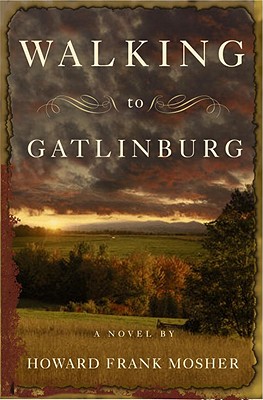The title of this post is, for me, a rhetorical question. Despite Amazon and many of its customers crying foul over Macmillan's
refusal to meet Amazon's terms on lowering the prices of its e-books, as both a bookseller and a member of a democratic and capitalist society, I am thrilled that Macmillan has stood firm on its pricing policy. Macmillan's stand paves the way for
other publishers to do the same, and to assert control over their products and services--something Amazon has been trying to take for themselves in subtle and overt ways.
I've discussed the issue in the past, and during this week, with people outside the bookselling world, and their thinking is often along the lines of, "Well, publishers make plenty of money--they're just being greedy;" and on the subject of Amazon ceasing to sell all Macmillan titles since Friday, "That's Amazon's perogative." The second comment is certainly true--Amazon can choose to sell or not sell any products it wishes. Despite this particular move coming off as a bit of a
temper tantrum to some, that fact remains. As for the first comment, the concrete numbers of publishing profits continue to elude me. I am not going to argue one way or the other on that issue--or on the issue of the value of good literature.
For what it's worth, here is my take on the matter. This conflict with Macmillan (and any other publishers that come to their senses) is all about the online retailer trying to bully publishers into doing business Amazon's way. Amazon is a huge company that, for many publishers, is their biggest account, and this gives the company a huge amount of leverage in any negotiations. At least, that's how it's been up to this point. After all, this
isn't the first time Amazon has tried strong-arming a publisher by ceasing to sell its books (perhaps one of Hachette's motivations in joining Macmillan's side in the e-book price war).
However, as The Amazon Kindle Team so misleadingly put it in their
"poor us, trying to stick up for the little guy" * letter to customers, publishers do, indeed, have a "monopoly" over their books. That is, if you define "monopoly" as one company owning the rights to the products that it produces and sells. I think most of us would agree that, while the vocabulary might be correct in a literal sense, it in no way corresponds to the typical use of the word.
Macmillan and other publishers need to finally realize that, yes, they do own the books that they sell, and that means that they get to have the final say in how they price and distribute those books. I'm not suggesting that all of the publishers join together in setting prices for their books--that
would be getting into monopoly territory, and very illegal--but they each need to determine the appropriate value of their books, in physical or digital format, that will sustain both the publishing house and the larger industry long into the future. If the publishers don't assert themselves now, it will only get harder down the road, and they may find themselves out of business after allowing Amazon to drive them down to unsustainable prices while driving the publisher's other customers (i.e. your friendly neighborhood booksellers) out of business.
More links:
Macmillan's jab at Amazon, in a New York Times ad
Macmillan's latest commentIt's important to remember the other injured party here: the authors whose works are being made unavailable by Amazon. Of course, this works to the advantage of other booksellers (
Indiebound!) when
authors choose to link to Amazon's competitors.
Author John Scalzi (a Macmillan author)
has had a lot to say on the subject A really wonderful post by a
fellow New England booksellerI'd love to hear from you on this--thoughts, questions, debate. What's your take? Do you feel this affects you one way or another...or not at all?
*Sorry, I don't buy it. It was Amazon's choice to take a loss on e-book sales by pricing them below wholesale. By demanding that publishers make $9.99 (or less) the standard retail price, Amazon is trying to save face with their customers and start making a profit on sales again.
 Special thanks to this week's guest blogger, Howard Frank Mosher!
Special thanks to this week's guest blogger, Howard Frank Mosher! sense that I’m surrounded by all my best old (and new) friends: Robert Frost, Jane Austen, Ernest Hemingway, Charles Dickens, Richard Russo, the Northeast Kingdom’s Leland Kinsey and David Budbill.
sense that I’m surrounded by all my best old (and new) friends: Robert Frost, Jane Austen, Ernest Hemingway, Charles Dickens, Richard Russo, the Northeast Kingdom’s Leland Kinsey and David Budbill.